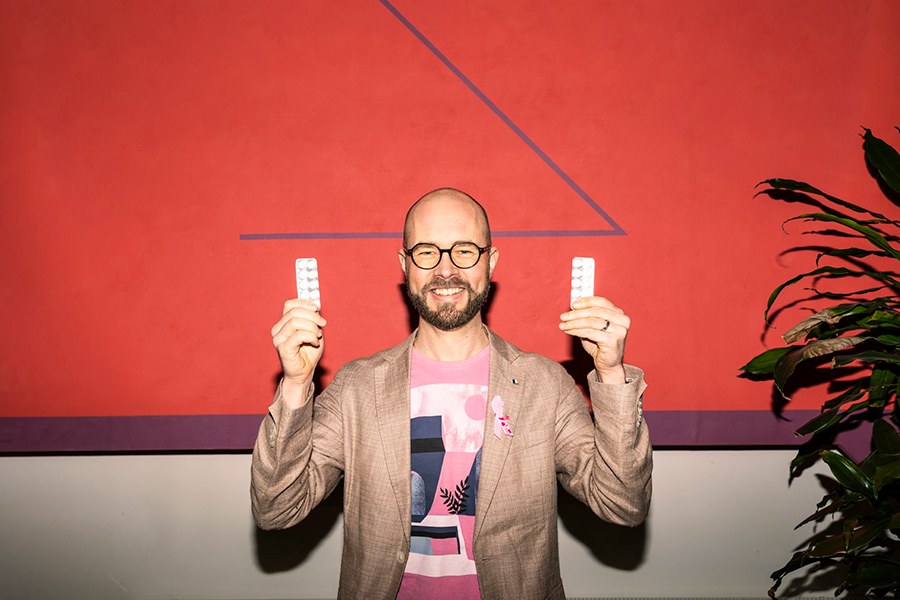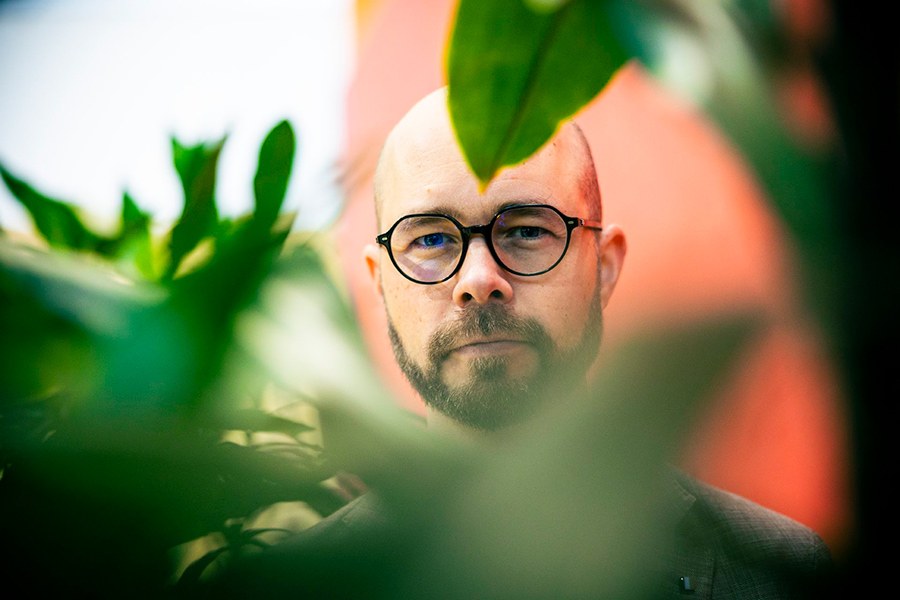A genetic mutation can save lives – Lynch syndrome paves the way for cancer vaccines and personalised treatments

In 1885, in Michigan, pathologist Aldred Scott Warthin has a conversation with his seamstress who reveals that many of her family members have died young of abdominal cancers. Warthin begins studying her family and publishes his findings in 1913.
His research was largely forgotten until 1966 when MD Henry Lynch reported several familial cancer clusters. He continued Warthin’s work with the seamstress’s family and began advocating the idea that cancer could be hereditary.
This was a radical notion at a time when the prevailing belief was that cancer was caused by viruses or external pathogens. Lynch initially faced significant opposition and ridicule.
Since then, the attitudes have shifted, and groundbreaking research on the heritability of cancers has been conducted, e.g., in Finland since the 1980s. In 2013, the syndrome formerly known as ‘cancer family syndrome’ and ‘hereditary nonpolyposis colorectal cancer syndrome’, was renamed Lynch syndrome in honour of his pioneering work.
Approximately one in three hundred people carry Lynch syndrome. In Finland, this translates to over 10,000 people, though only about 2,000 have been identified. Lynch syndrome is a genetic mutation that has a 50% chance of being passed on to the children of carriers. It significantly increases the risk of colorectal cancer, as well as other cancers such as endometrial, ovarian, urinary tract, abdominal, and small intestine cancers. Those with the mutation often develop these cancers at a younger age than the general population.
From the individual’s perspective, Lynch syndrome and its prevalence in the population is not a positive thing, but from the research standpoint it is, meaning that the disease can also benefit patients.
“Lynch syndrome has been a crucial testing ground for cancer research in many ways. Thanks to it, we have gained significant insights into cancer behaviour, molecular mechanisms, immune responses, and how the immune system functions,” says Associate Professor Toni Seppälä.

When we can predict something, we can study what causes it and how those factors can be influenced. This approach helps us find solutions to the big question of how to prevent cancer.
“Currently, there is intense development work on cancer-preventive vaccines, which will soon be tested in large patient groups. The most progress has been made with cancers linked to Lynch syndrome. It will be a major breakthrough when we can prevent cancers that we know are likely to develop,” Seppälä says.
Genetic phenomenon improves tumour prognosis
The reason why cancer vaccines are the furthest along specifically for Lynch syndrome is that Lynch tumours develop via a different molecular pathway than other cancers. This also gives them a different genetic phenotype.
Lynch syndrome is characterised by microsatellite instability. It is a genetic phenomenon where the microsatellite sequences of DNA – short repeating sequences of DNA bases – become unstable and increase in the tumour’s genome differently than in other cancers. It occurs when DNA repair systems cannot correct errors that occur during cell division and DNA replication, which is exactly what happens in the cancer cells in Lynch syndrome
“Due to a faulty error correction mechanism, numerous mutations build up in the tumour genome. Consequently, the tumours generate many abnormal proteins that trigger a response from the patient’s immune system. This results in a large presence of the body’s own immune cells around and within the tumour which they are unable to fight against,” Seppälä explains.
This is why cancer vaccine development is the furthest along in research on Lynch syndrome. The vaccines know exactly what to target, which is activating the patient’s immune response. When the handbrake is taken off the immune cells, they become activated against the tumour and eliminate it. A vaccine would be able to train the immune cells in advance.
Due to microsatellite instability, Lynch syndrome tumours also metastasise less frequently. Because the disease is locally confined, it has a better prognosis from the outset.

A treatment path that aligns with the patient’s values and needs
In his work, Seppälä focuses on cancer treatment, where care and prevention are planned from individual starting points. The planning takes into account, for example, the patients’ lifestyle and genetic heritage such as Lynch syndrome, and their values and wishes. The goal is to offer each patient the most suitable and effective treatment with the least side effects.
A good example of this development is the NORPPA1 study, which Seppälä leads at Tampere University Hospital. The aim is to provide a non-surgical treatment option for rectal cancer and improve the patients’ quality of life.
“If what we are doing became an established treatment practice, we could bring completely new options to the table. We could aim to destroy the tumour from the start, especially if the patient finds it more important to preserve the target organ than to ensure that the cancer does not recur. We could tailor the treatment path individually according to the patient’s values and needs,” Seppälä points out.
The study includes 13 hospitals in Finland and Estonia. Patients whose tumours have completely disappeared following radiation, chemotherapy, or immunotherapy—such as those with Lynch syndrome—are invited to participate. These patients are closely monitored for the first two years, with additional follow-ups for the next three years. Follow-up visits take the place of surgery unless the cancer returns. If the cancer does recur, it will be surgically removed according to current practice. This approach ensures that the new treatment option is implemented safely and in a controlled manner.
No research or treatment, no matter how advanced, can eradicate the risk of cancer. However, the chances of developing cancer and dying of it can be significantly reduced. For instance, in the case of Lynch syndrome, it is known that taking a daily dose of aspirin for at least two years can halve the incidence of colorectal cancer in carriers of the genetic mutation. It is also known that when the cancer risk is high, lifestyle factors play an even more crucial role.
“In Lynch syndrome, identifying carriers of the genetic mutation is vital because healthcare interventions can greatly benefit these patients. Generally, there needs to be greater awareness in society about the importance of molecular profiling. Individual diagnostics should be equally accessible to all patients in Finland. Unfortunately, this is not yet the case,” says Seppälä.
Contact person
Author: Sari Laapotti





